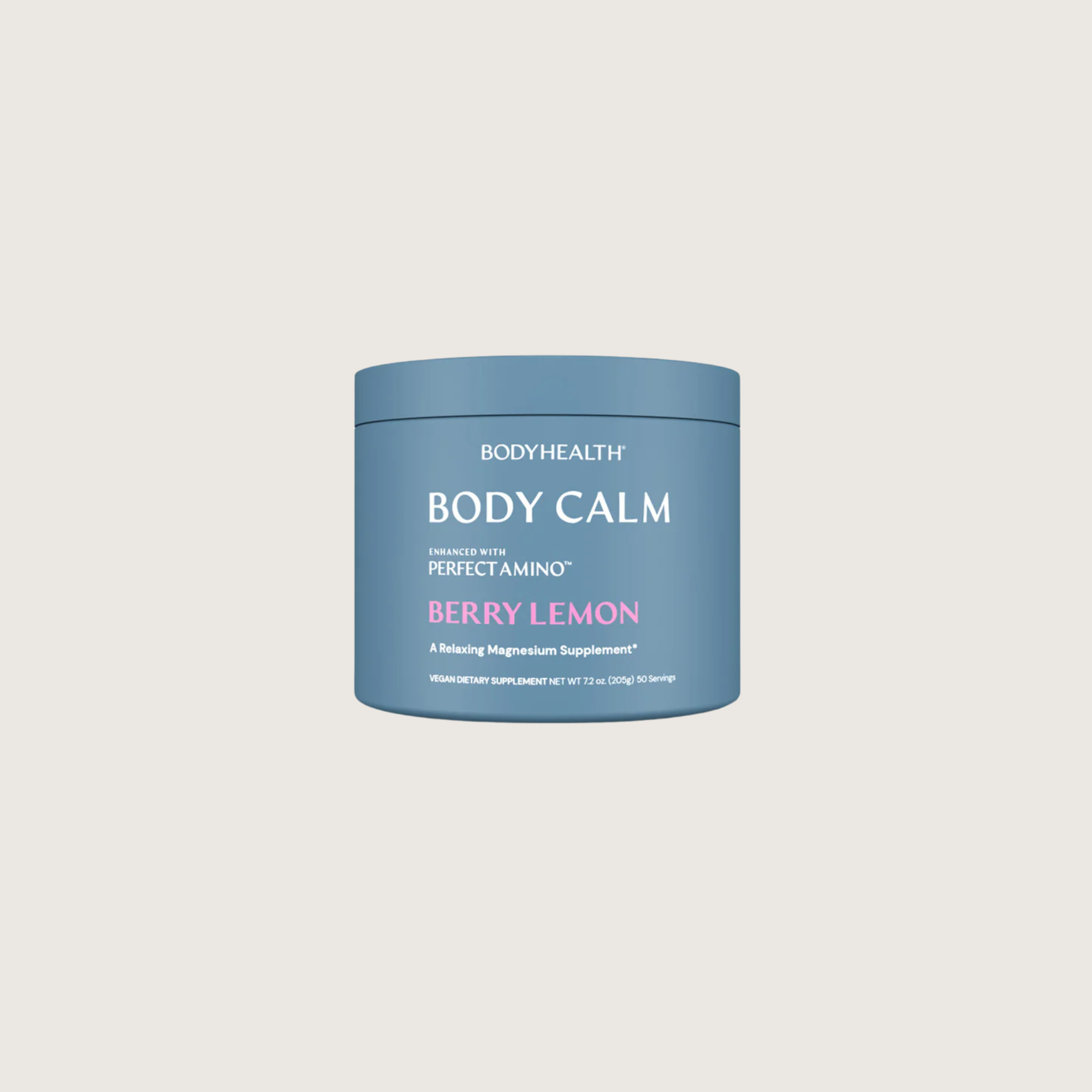What is Hormone Optimization?
There was a time when I felt like I was running on fumes, nursing a baby with FPIES, stuck on a severely limited diet, barely getting enough calories or water to function. I was postpartum, co-sleeping with a newborn who didn’t sleep, and trying to hold everything together while unraveling inside. I chalked up the anxiety, mood swings, weight gain, and brain fog to the chaos of motherhood. But it wasn’t just exhaustion or circumstance, it was my hormones waving a red flag.
Now, with a toddler who still has FPIES, still nurses, and still shares my bed, I’m working through the ripple effects like lingering fatigue, dehydration, and histamine flares tied to my MTHFR gene mutation. The more I’ve learned, the more I’ve realized: this isn’t just about postpartum or parenting. It’s about the deep hormonal shifts that quietly run the show—and mine were completely out of sync.
That something? Micronutrients, sleep and hormone disruptions. Not just period hormones or postpartum hormones disruptions, but full-body, behind-the-scenes control panel that was blinking red and begging for attention.
As I tried to make sense of it all, I started digging into the wellness space, and what started as late-night Googling all the guests my favorite podcasters had on their shows, turned into something much deeper. I found myself immersed in the work of functional medicine leaders like Drs. Will Cole and Mark Hyman, and biohacking geniuses like Gary Brecka, Dave Asprey, and Ben Greenfield. They weren’t just talking about symptoms; they were talking about root causes, full-body healing, and how hormones are connected to everything, mood, metabolism, sleep, stress, and even how we age.
What I learned from them helped me see my own patterns more clearly, and gave me the tools to start rebalancing from the inside out.
Hormones are chemical messengers that regulate everything from sleep to sex drive, metabolism to mood. Estrogen and progesterone levels naturally shift during your cycle, after birth, as we age, and in response to stress. But when these levels become chronically imbalanced, we start experiencing symptoms that mess with our quality of life.
That’s where hormone optimization comes in.
Today, we’re diving into what hormone optimization is, how it works, and why it matters for women who are ready to feel like themselves again. Whether you’re battling symptoms of hormone imbalance or just curious if your hot flashes, brain fog, or burnout could be hormonal, this one’s for you.
What is Hormone Optimization?
Hormone optimization is the process of bringing your hormone levels back into balance so your body can function the way it was designed to. It's not about reaching "perfect" levels or chasing youth. It's about restoring harmony between the hormones that regulate metabolism, mood, energy, sleep, libido, menstrual cycles, and more.
Optimized hormone levels can help your body respond better to stress, improve mental clarity, regulate your weight, and even support long-term protection against health conditions like osteoporosis and cardiovascular disease.
Hormone optimization can be approached through lifestyle changes, targeted supplements, and when necessary, hormone optimization therapy, including bioidentical hormone replacement therapy (BHRT) or traditional hormone replacement therapy (HRT).
For people experiencing symptoms that disrupt daily life, from persistent fatigue to low libido, weight gain, mood swings, or hot flashes, creating a treatment plan that supports hormonal balance can be life-changing.
Special Note
Experts like Gary Brecka, Kayla Barnes, and Drs. Mark Hyman and Will Cole all agree: the best hormone optimization journey starts with testing, nutrition, sleep, and stress support, not jumping straight to hormone replacement therapy HRT or bioidentical hormone replacement therapy BHRT. Brecka points out that around 70% of people on hormone therapy could benefit from diet and lifestyle shifts first, especially focusing on protein-rich meals, strength training, adequate sleep, and toxin reduction.
What Functional Experts Recommend:
Full hormone panel testing
Blood sugar and insulin support
Daily strength training
Prioritizing sleep and sunlight
Ditching hormone-disrupting toxins (see our non-toxic living guide)
Tracking your cycle (yes, even if you’re not TTC)
Barnes, who hosts the Longevity Optimization Podcast, emphasizes that hormone balance is foundational for cognitive clarity, mood, gut health, and long-term quality of life, especially important for busy moms balancing caregiving and self‑care.
Symptoms of Hormonal Imbalance Include:
Fatigue that doesn’t improve with rest
Unexplained weight gain
Mood swings or anxiety
Low libido
Brain fog
Irregular or painful menstrual cycles
Hot flashes or night sweats
Sleep disturbances
And most frequently…
Snapping at your partner for breathing too loudly
Feeling like you need a nap, a snack, a hug, and a solo vacation…simultaneously
Starting fights in your head with people who haven’t even spoken to you today
What Are The Benefits Of Hormone Optimization?
Increased Energy
Chronic fatigue is one of the most overlooked symptoms of hormone imbalance. Optimizing cortisol, estrogen, and thyroid levels can dramatically improve energy, alertness, and your ability to recover from stress.
Better Mood Stability
Mood swings aren't just a PMS thing. Estrogen, progesterone, and testosterone all play a role in emotional regulation. When your hormones are balanced, emotional lows feel less extreme, anxiety can decrease, and you're more likely to feel emotionally grounded.
Support for Weight Loss and Metabolism
Hormonal shifts (especially in estrogen, insulin, and cortisol) can trigger weight gain that resists diet and exercise. Hormone optimization can help unlock fat storage patterns, improve muscle mass, and make weight loss more attainable.
Improved Sleep
Melatonin isn’t the only hormone affecting sleep. Progesterone, estrogen, cortisol, and insulin all play key roles in circadian rhythm regulation. Balanced hormones help you fall asleep faster and stay asleep longer.
Regulated Menstrual Cycles
If your periods are irregular, painful, or missing entirely, hormone optimization can help. Balancing estrogen and progesterone levels is key to healthy menstrual cycles and ovulation. For more on this, and all things hormone-related, check out Dr. Jolene Brighten! She is one of my favorite endocrinologists that I read and listen to often.
Relief From Hot Flashes and Night Sweats
Whether you’re in perimenopause, menopause, or experiencing postpartum changes, hot flashes and night sweats are signs of estrogen imbalance. Hormone replacement therapy (HRT) or BHRT may help reduce these uncomfortable symptoms.
Enhanced Libido and Sexual Wellness
Low libido isn’t just about desire, it can be tied to low testosterone, imbalanced estrogen, or vaginal dryness. Optimizing hormone levels can revive your sex drive and improve overall intimacy.
Mental Clarity and Focus
Brain fog is real, and it often tracks back to hormonal shifts. When your hormones are stable, cognitive function, short-term memory, and decision-making all improve.
How To Optimize Hormone Levels
Get Comprehensive Testing
You can’t fix what you can’t measure. Start with a full hormone panel through a functional or integrative practitioner who understands optimized hormone levels, not just what’s "normal" on a lab report. Blood, saliva, and urine testing can each provide different insights.
My husband and I both did testing through Function Health, and it gave us one of the clearest pictures of our health we've ever had. You can shop Function tests directly through my curated wellness shop, and use my code MABRAHAM10 for 10% off any diagnostic testing. It’s one of the most empowering investments we’ve made for our long-term health.
Balance Blood Sugar
High and low blood sugar spikes wreak havoc on cortisol, insulin, and sex hormones. Prioritize protein-rich meals, minimize refined carbs, and don’t skip meals, especially breakfast.
Reduce Toxin Exposure
Environmental toxins can act as endocrine disruptors, mimicking or blocking your body’s natural hormones. Cleaning up your personal care products, household items, and food is key. (See my full guide to non-toxic living for tips on where to start.)
Support Detox Pathways
Your liver metabolizes hormones, so make sure it’s supported through adequate hydration, cruciferous vegetables, movement, and reducing alcohol. I personally love Dose—a daily detox shot that’s packed with organic turmeric, milk thistle, dandelion, and other liver-loving ingredients. It’s sour, delicious, and it’s an easy, effective ritual our family has after dinner to support daily detox and hormone balance.
Sleep Like It’s Your Job
Your hormones regenerate while you sleep. As a co-sleeping mom of a toddler who still wakes me up more nights than not, I’ve had to get creative with what restorative sleep actually looks like. I also take Body Calm, and it has been absolutely wonderful for sleep support. It helps me wind down, stay asleep, and wake up feeling like my body actually rested, something that’s been hard to come by in this season of life. Prioritize 7–9 hours per night, keep a regular bedtime, and aim for darkness and cool temps in your room.
Consider Hormone Optimization Therapy
If lifestyle changes aren’t enough, hormone optimization therapy may be just what you need. Bioidentical hormone replacement therapy (BHRT) uses plant-derived hormones that mimic your body's natural ones, while HRT often uses synthetic forms. Both options should be discussed with a qualified provider who specializes in hormone care.
Track Symptoms and Adjust Your Plan
Everyone’s hormonal needs are different. Keep a journal of symptoms, mood shifts, menstrual changes, and side effects. Your treatment plan may need ongoing adjustment.
No More Running on Coffee & Crumbs
You don’t need to wait until things feel “bad enough” to start paying attention. If you’re tired, wired, moody, foggy, or just not yourself lately, it could be your hormones asking for a reset.
Hormone optimization isn’t a trend. It’s a return to balance and to feel steady, clear, rested, and present, in your body and your life.
So if you’ve been quietly wondering if something’s off, this is your sign to look deeper. Get curious. Ask questions. Run the tests. You don’t have to figure it all out today, but you do get to start.
And when you’re ready, I’ve got tools and resources waiting for you right here.





